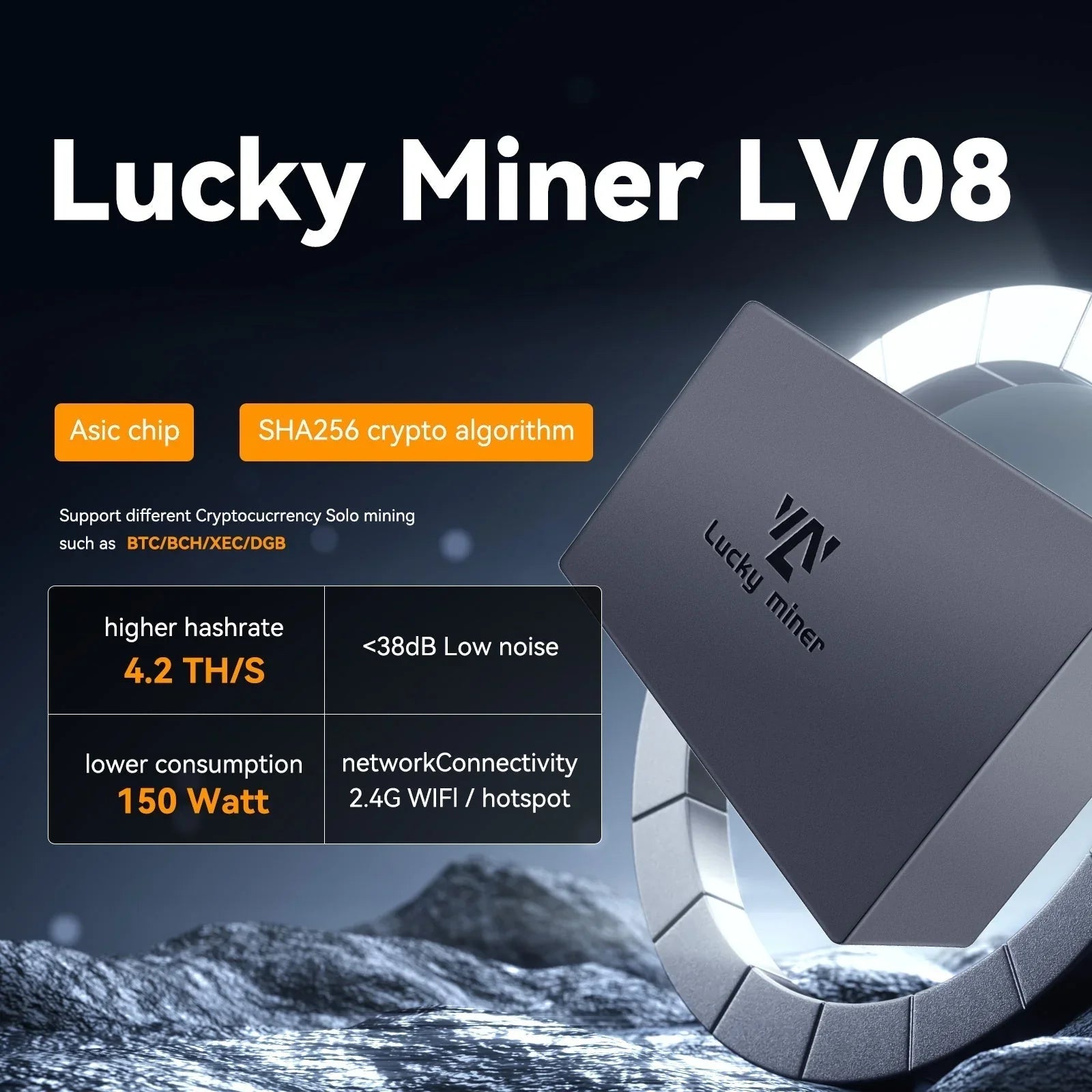The world of crypto mining is evolving, with new innovations pushing the boundaries of what’s possible. One such breakthrough is RWA tokenization, an exciting fusion of traditional assets and the digital world. In this article, we’ll explore how Lucky Miner is playing a key role in bridging the gap between these two spheres and how it enhances your BTC solo mining experience. We’ll also delve into the importance of Bitcoin lottery miners and other crypto mining hardware features that contribute to this revolution.
What is RWA Tokenization?
RWA (Real World Asset) tokenization refers to the process of representing traditional assets, such as real estate, commodities, and financial securities, as blockchain-based tokens. By doing so, these assets can be traded, transferred, and stored in a digital format. This concept is gaining traction because it allows for greater liquidity, accessibility, and efficiency compared to traditional asset management.
In the realm of crypto mining, Lucky Miner is at the forefront, offering powerful ASIC miner machines designed to optimize mining performance. These machines help miners extract cryptocurrencies efficiently while contributing to the wider ecosystem of digital asset tokenization.
The Role of Lucky Miner in the RWA Tokenization Ecosystem
Lucky Miner brings innovation to BTC solo mining and Bitcoin lottery mining, making them more efficient and profitable than ever before. By integrating tokenized assets, Lucky Miner users can diversify their operations, benefiting from the liquidity and flexibility of tokenized real-world assets while enhancing their mining efficiency.
Key Features of Lucky Miner Products
When you invest in a Lucky Miner product, you're getting much more than just an ASIC miner machine. The advanced technology behind these machines maximizes performance across multiple parameters, making them ideal for both BTC solo mining and participation in Bitcoin lottery miners. Here’s a look at some of the standout features of Lucky Miner hardware:
-
Hash Rate: The Lucky Miner series offers some of the highest hash rates on the market, providing unmatched computational power to solve cryptographic puzzles faster. This makes your mining operations more competitive and efficient.
-
Power Consumption: Lucky Miner products are engineered to use less power while maintaining high performance. The low power consumption ensures that you can mine cryptocurrencies at optimal efficiency, keeping operational costs manageable.
-
Cooling System: A high-performance cooling system is a key component of Lucky Miner products. With powerful and efficient cooling, these machines prevent overheating, ensuring consistent performance during long mining sessions.
-
Reliability: The robust design of Lucky Miner products ensures that they continue to perform under heavy workloads, providing miners with a reliable and durable solution for their mining operations.
How RWA Tokenization Is Changing the Game for Crypto Miners
With the rise of RWA tokenization, miners now have the ability to interact with tokenized assets, such as real estate or gold, alongside their digital currencies. This adds another layer of flexibility to the world of BTC solo mining and Bitcoin lottery mining. By tokenizing traditional assets, miners can access additional investment opportunities and diversify their portfolios beyond just cryptocurrencies.
Lucky Miner products are an essential part of this shift, offering powerful hardware that supports the growing demand for RWA tokenization. By enhancing mining capabilities with high hash rates and low power consumption, Lucky Miner miners can ensure their operations remain competitive and profitable.
The Future of Crypto Mining and Asset Tokenization
The combination of Lucky Miner products with RWA tokenization marks a significant step forward in the integration of traditional finance and blockchain technology. As more traditional assets are tokenized, miners will have greater opportunities to diversify their portfolios, while the efficiency of Lucky Miner hardware ensures they can mine and tokenize assets without compromising on performance.
In the future, we expect to see even more advanced ASIC miner machines designed to handle the increasing demands of both crypto mining and RWA tokenization. With innovations like Lucky Miner, miners can stay ahead of the curve and ensure that their operations remain profitable and scalable.
Conclusion: A New Era in Crypto Mining and Tokenization
As the worlds of traditional assets and cryptocurrencies continue to merge, Lucky Miner products are at the cutting edge of this revolution. With powerful features like high hash rates, low power consumption, and advanced cooling systems, Lucky Miner ensures that miners can take full advantage of the growing RWA tokenization trend while maintaining a competitive edge in BTC solo mining and Bitcoin lottery mining.
Embrace the future of crypto mining hardware with Lucky Miner and get ready to explore the endless possibilities of tokenized real-world assets.






























Leave a comment